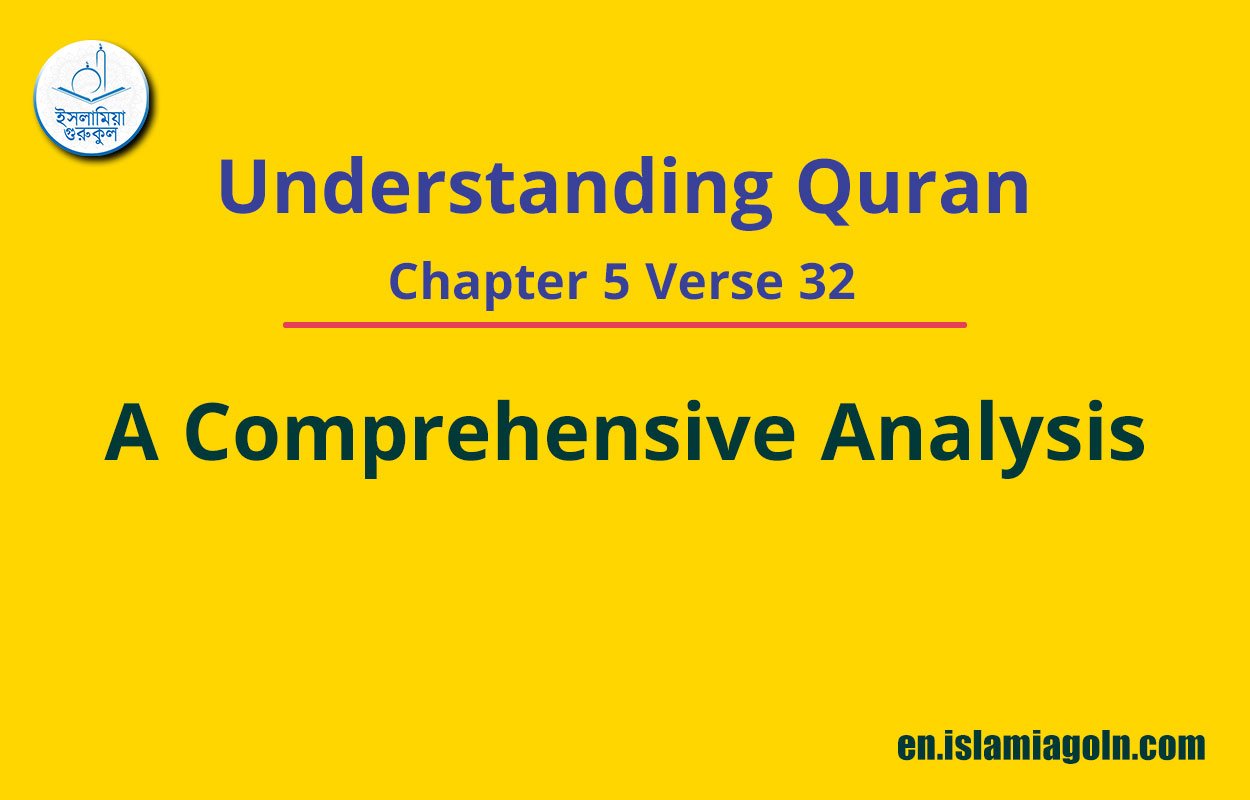Quran Chapter 5 Verse 32: Often cited for its message of peace and sanctity of life, the Verse 32 of Surah Al-Ma’idah, or Chapter 5, of the Quran presents profound wisdom and a moral commandment that is deeply resonating. This article aims to explore and contextualize this verse in depth.
Understanding Quran Chapter 5 Verse 32

The Verse
Firstly, let’s start with the verse itself:
“Because of that, We decreed upon the Children of Israel that whoever kills a soul unless for a soul or for corruption [done] in the land – it is as if he had slain mankind entirely. And whoever saves one – it is as if he had saved mankind entirely. And our messengers had certainly come to them with clear proofs. Then indeed many of them, [even] after that, throughout the land, were transgressors.”
This verse has often been translated slightly differently based on the interpretation of the Arabic text, but the main essence of the message remains the same.

Contextual Background
This verse was revealed in the context of the story of the sons of Adam – Cain (Qabil) and Abel (Habil). It serves as a direct response to the first murder committed by a human, as told in the Quran, which is the murder of Abel by his brother Cain. This specific context gives the verse a powerful foundation, as it comes as a moral lesson from the first act of murder in human history.

The Message
The verse starts with a clear decree to the Children of Israel, but the commandment given isn’t limited to just one group of people. It is a universal command that transcends time and space, and it holds true for all of humanity.
It states that taking a single life unjustly is as grave a sin as killing all of humanity. The killing of a single soul is equated to mass genocide, emphasizing the sanctity and importance of each individual life. The only exceptions stated are for legal retribution (i.e., the execution of a murderer) or for stopping corruption on Earth.
On the flip side, the verse also speaks about saving lives. It states that saving one life is equivalent to saving all of mankind, emphasizing the profound importance and merit in preserving life.

Relevance and Implication
The verse holds immense value in fostering peace, and it encourages respect for the sanctity of life. It teaches us about the grave sin of taking a life unjustly and the immense reward of saving a life.
The verse is also often invoked in discussions about the value of life in Islamic jurisprudence. It serves as a basis for legal principles in Islamic law that prioritize the protection of life.
In modern times, it’s frequently quoted as a testament to the fundamental peacefulness and respect for life inherent in the teachings of Islam. The message of this verse is also a guiding principle in the humanitarian work conducted by Muslims and Islamic organizations around the world.

Verse 32 of Chapter 5 of the Quran is an impactful verse that carries a timeless message of peace and respect for life. It not only provides guidelines for ethical conduct and principles of justice, but also reminds us of our shared humanity and the immense value of every single life. Its universal message resonates with individuals of all faiths, inviting all of humanity to work towards peace, justice, and the preservation of life.
